MercoPress. South Atlantic News Agency
Economy
-
Friday, November 29th 2019 - 08:01 UTC
Falklands' finances have to manage with budget surpluses

The Falkland Islands Standing Finance Committee met on November 27 in the Liberation Room, Stanley and reported that the forecast operating surplus for the year is now £11.3 million, excluding capital expenditure.
-
Thursday, November 28th 2019 - 09:46 UTC
Falklands government and fishing companies contrast over ITQ fees
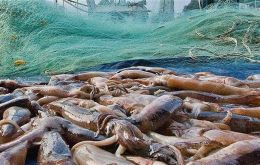
The announcement by the Falkland Islands Executive Council referred to ITQ fees, particularly toothfish and calamari, which would represent an annual £3.9 million additional income for government coffers, was contrasted by a release from the Falklands' seafood sector pointing out that “to increase quota access fees paid by local fishing companies by 50% will increase costs to the industry by £4 million per annum”
-
Wednesday, November 27th 2019 - 09:55 UTC
Alberto Fernandez renounces to IMF loan: “I want to stop asking for money”
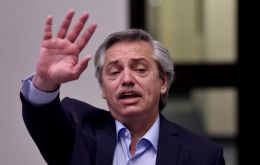
Argentina's president-elect Alberto Fernandez said on Tuesday he would renounce the remaining US$11 billion tranches of the country's International Monetary Fund loan as soon as he takes office next month.
-
Wednesday, November 27th 2019 - 09:43 UTC
Boris Johnson is “dangerous and unfit for office”, claims Scottish leader Sturgeon calling for a vote to “escape Brexit”
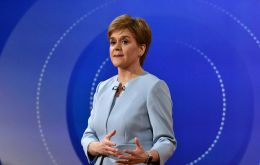
Scotland's leader Nicola Sturgeon is to accuse Prime Minister Boris Johnson of being “dangerous and unfit for office” as she launches the SNP's election manifesto. The SNP leader will say that a vote for her party on 12 December will be a vote to “escape Brexit and put Scotland's future in Scotland's hands”.
-
Tuesday, November 26th 2019 - 09:52 UTC
New IMF head of mission in Argentina, as Macri prepares to step down from office
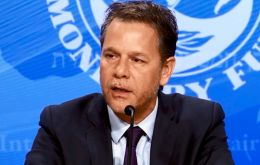
The International Monetary Fund has named as head of its mission in Argentina, Luis Cubeddu, 53, replacing Italian born Roberto Cardarelli. Cubeddu is knowledgeable in Argentina since he was in Buenos Aires between 2002/04, during a similar financial pre-default situation, as a member of the IMF representation.
-
Tuesday, November 26th 2019 - 09:48 UTC
Argentina 2019: annual inflation of 55% and economy contraction of 2.7%

Argentina will finish 2019 at 55% annual inflation, the country’s treasury minister said on Monday, capping off a tumultuous year for Latin America’s No. 3 economy that also saw voters usher in a new leftist government.
-
Tuesday, November 26th 2019 - 08:44 UTC
Britain is a dangerous mess, warns Tony Blair; “the Marxist Leninist wing has taken over Labour”
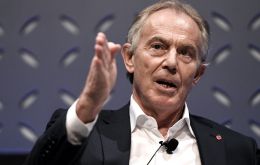
Former prime minister Tony Blair said on Monday that Britain was in a dangerous mess and that neither his own Labour Party nor Prime Minister Boris Johnson’s Conservatives deserved to win a Dec. 12 election.
-
Tuesday, November 26th 2019 - 08:35 UTC
Tories' lead over Labour is narrowing according to the latest opinion polls

British Prime Minister Boris Johnson's Conservative Party saw its lead over the opposition Labour Party narrow during the last week, an opinion poll by ICM for Reuters showed on Monday, ahead of a Dec 12 election.
-
Monday, November 25th 2019 - 06:29 UTC
US, a source of instability and “baselessly smearing China” blasts top Beijing official

The United States is the world's biggest source of instability and its politicians are going around the world baselessly smearing China, the Chinese government's top diplomat said on Saturday in a stinging attack at a G20 meeting in Japan.
-
Saturday, November 23rd 2019 - 09:51 UTC
The Economist and Chile: the painful birth of a different country

In 2014, Michelle Bachelet a Socialist swept into Chile’s presidency for a second time on a program of radical reform of tax, education and pensions. She also aspired to enact a new constitution that would guarantee “more balance between the state, the private sector and society”, as she told your columnist over tea at the Moneda presidential palace. She argued that her “struggle against inequality” was the last chance to deal with discontents that, if neglected, could push Chile towards populism.
